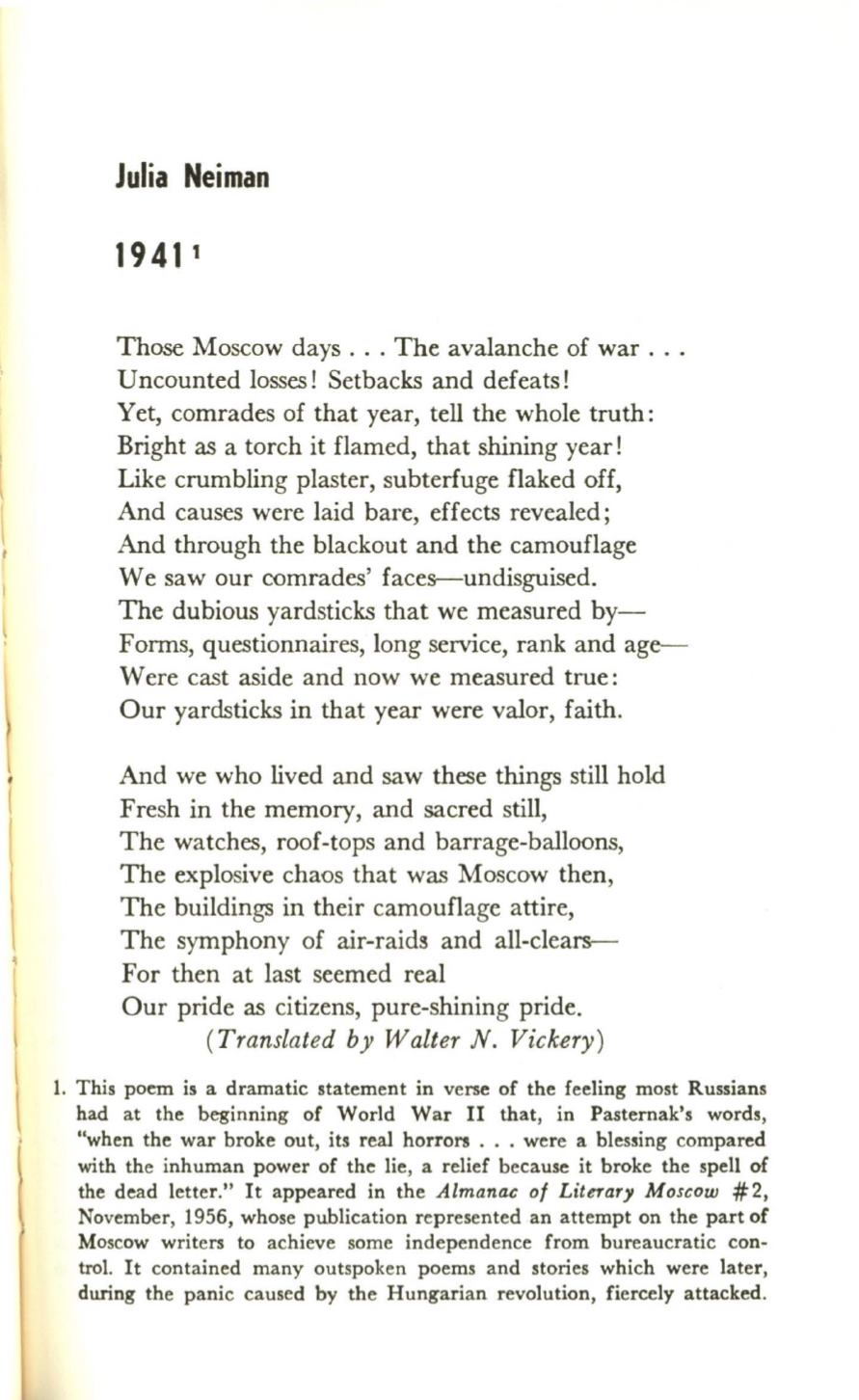
Julia Neiman
1941 '
Those Moscow days ... The avalanche of war ...
Vncounted losses! Setbacks and defeats!
Yet, comrades of that year, tell the whole truth:
Bright as a torch it flamed, that shining year!
Like crumbling plaster, subterfuge flaked off,
And causes were laid bare, effects revealed;
And through the blackout and the camouflage
We saw our comrades' faces--undisguised.
The dubious yardsticks that we measured by–
Forms, questionnaires, long service, rank and age–
Were cast aside and now we measured true:
Our yardsticks in that year were valor, faith.
And we who lived and saw these things still hold
Fresh in the memory, and sacred still,
The watches, roof-tops and barrage-balloons,
The explosive chaos that was Moscow then,
The buildings in their camouflage attire,
The symphony of air-raids and all-clears–
For then at last seemed real
Our pride as citizens, pure-shining pride.
(Translated by Walter N. Vickery)
1.
This poem is a dramatic statement in verse of the feeling most Russians
had at the beginning of World War II that, in Pasternak's words,
"when the war broke out, its real horrors ... were a blessing compared
with the inhuman power of the lie, a relief because it broke the spell of
the dead letter."
It
appeared in the
Almanac of Literary Moscow #2,
November, 1956, whose publication represented an attempt on the part of
Moscow writers to achieve some independence from bureaucratic con–
trol.
It
contained many outspoken poems and stories which were later,
during the panic caused by the Hungarian revolution, fiercely attacked.


